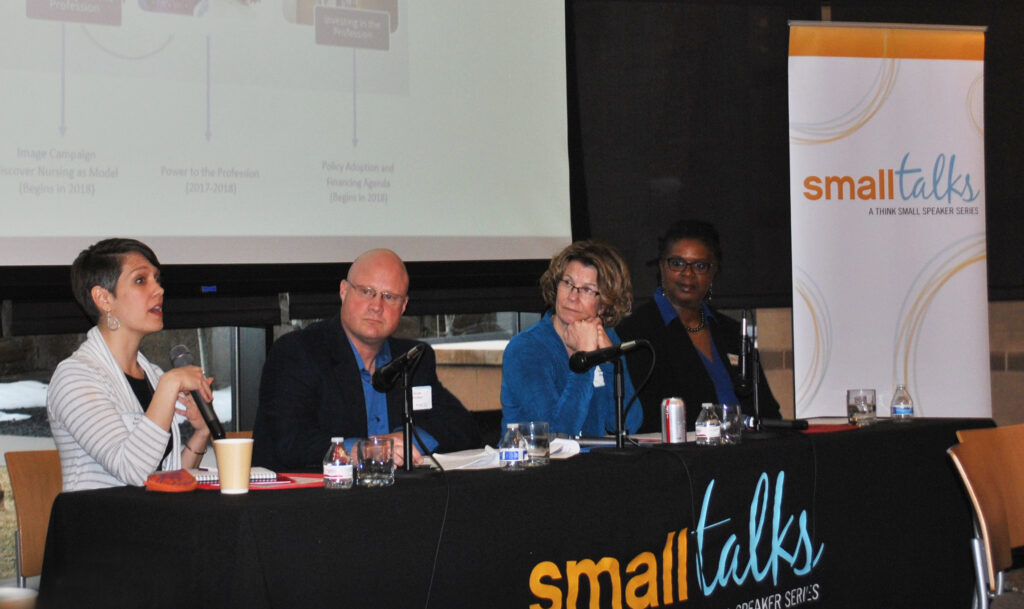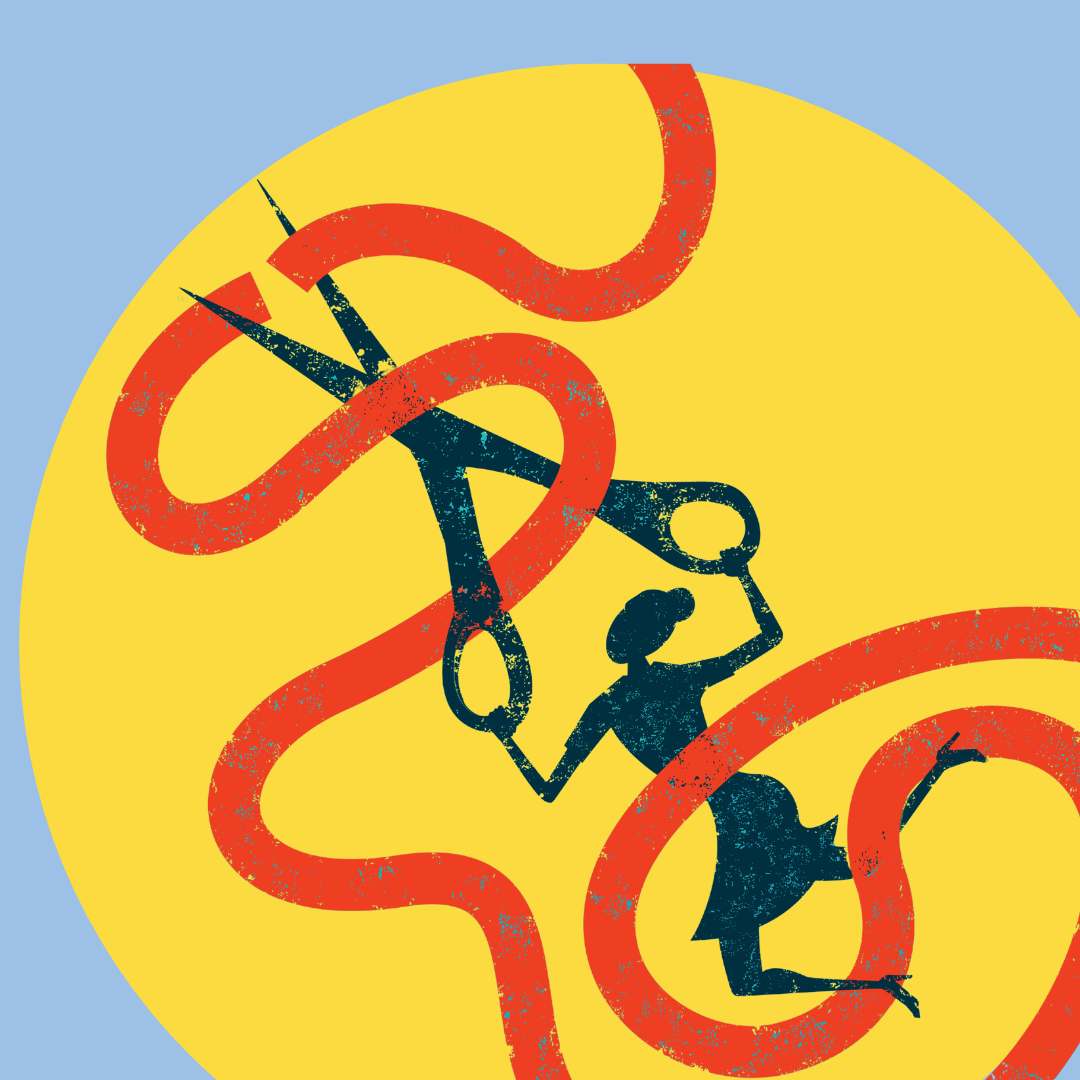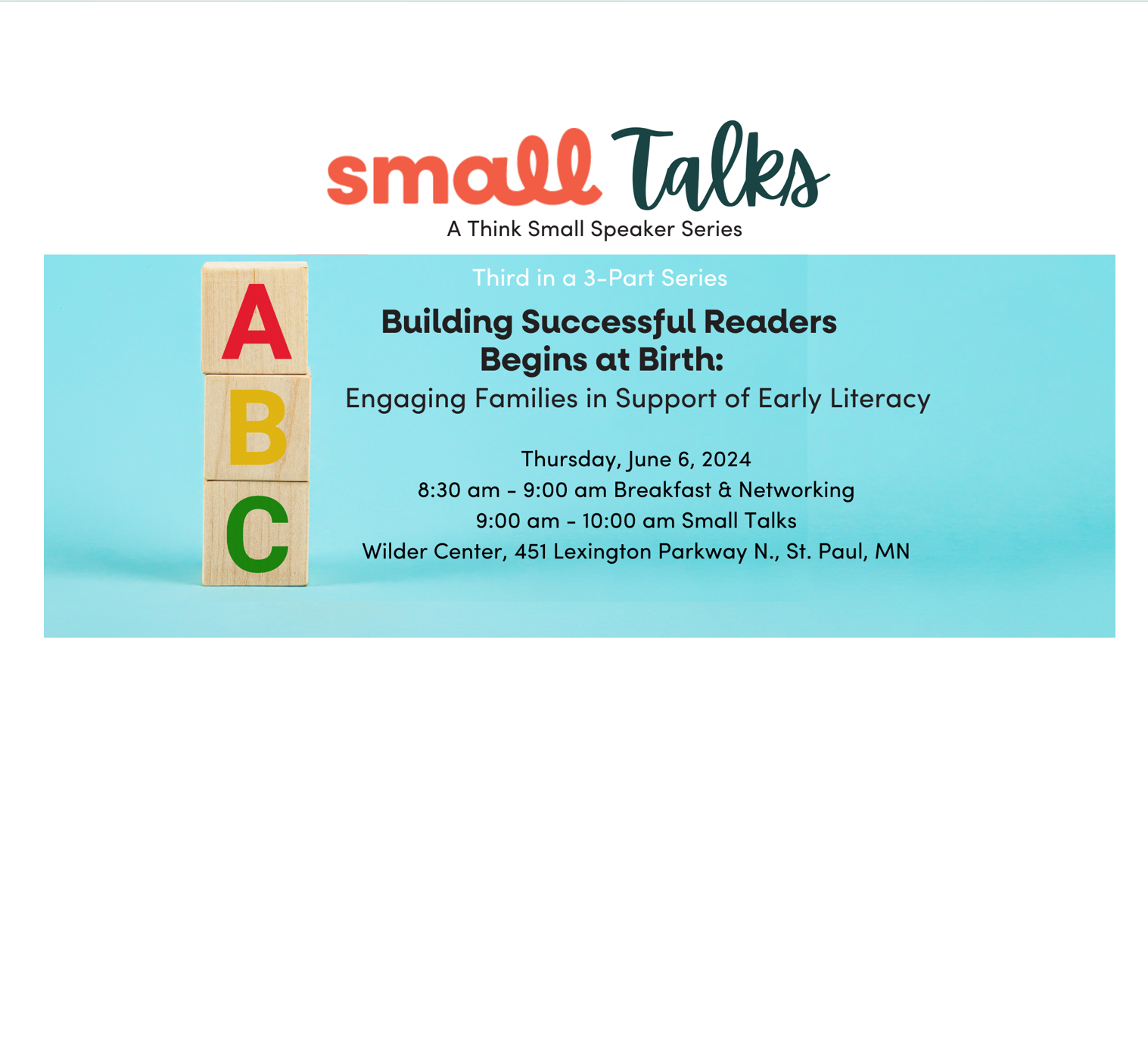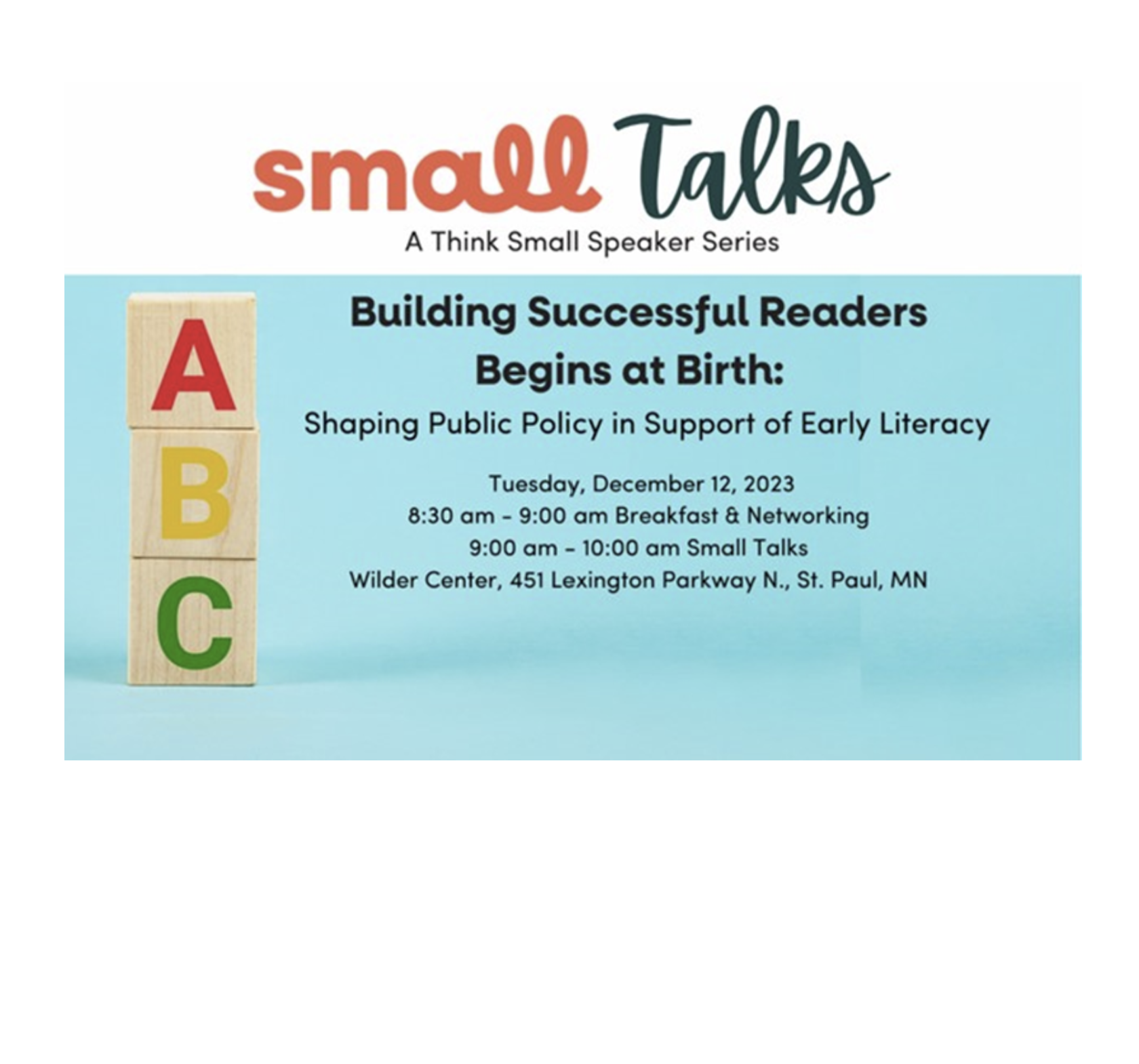By Kristie Thorson“If this is going to be part of a public movement, if we’re going to be attracting people to join the profession, if we’re going to ask families and voters to support this profession, we also need to build the image of the profession,” said Kat Kempe, Senior Director for Professional Recognition and Advancement with the National Association for the Education of Young Children (NAEYC).At NAEYC, Kempe leads Power to the Profession, a national collaboration to establish a unified framework for the early learning profession. She talked about its goals during the Small Talks event on March 27, 2018. The event focused on state and national initiatives tackling the issues of building and sustaining a Minnesota child care workforce.“Power to the Profession is focused on advancing the early childhood education profession because it is the best and most effective way to improve outcomes for children and families,” Kempe said.Small Talks features leaders who share key insights on early childhood education and discuss innovative solutions to early learning issues in Minnesota.
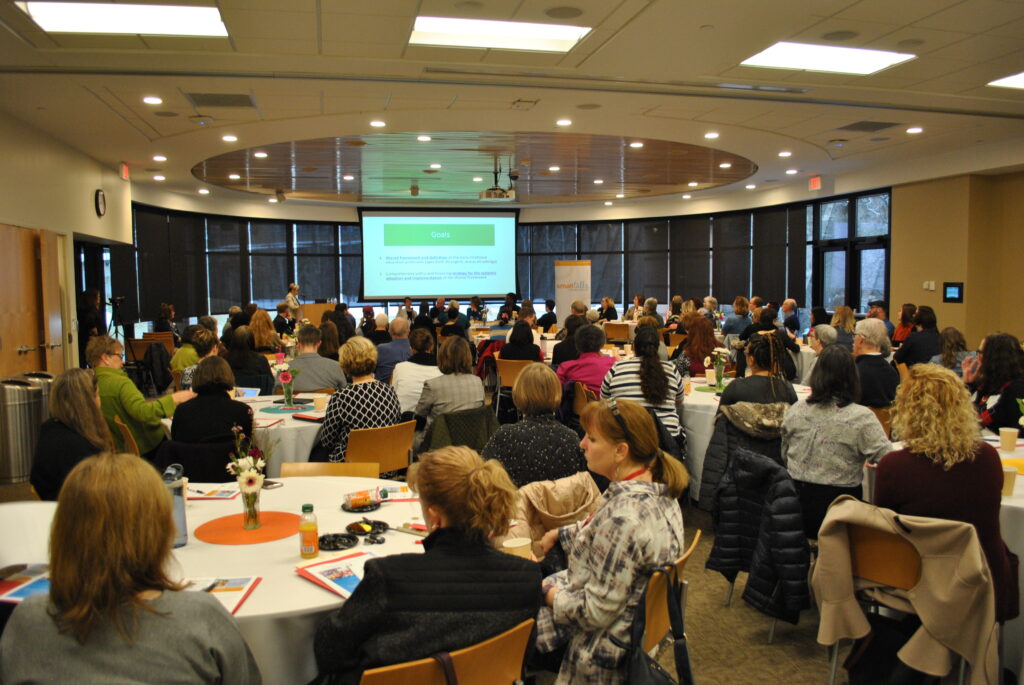 Elevating the Early Childhood Profession: Identifying Solutions for a Better Future took place at the Wilder Center in St. Paul. More than 100 people attended the early morning conversation which featured four panelists, and was moderated by Kelly Monson, Executive Director of the Minnesota Children’s Cabinet.Panelist Scott Parker, is a supervisor for the Child Development Services Unit at the Minnesota Department of Human Services. His unit provides state and federal resources to support initiatives that improve quality in child care settings. He said one of the keys to building, growing and recognizing the profession is improving compensation.“At this point, the median wage for folks working in the early childhood field is still $10.80 and hour,” Parker added. “This is an area that we’ve been struggling with for many years.”Parker said a state workgroup is looking at strategies to reward base pay for those who are working in the field. Things like how quality can be rewarded at the program level, how education and training can be rewarded at the individual level, and what kinds of resources are available to assist with compensation, such as tax credits, wage enhancement programs, loan forgiveness, and business education for those working in the field.
Elevating the Early Childhood Profession: Identifying Solutions for a Better Future took place at the Wilder Center in St. Paul. More than 100 people attended the early morning conversation which featured four panelists, and was moderated by Kelly Monson, Executive Director of the Minnesota Children’s Cabinet.Panelist Scott Parker, is a supervisor for the Child Development Services Unit at the Minnesota Department of Human Services. His unit provides state and federal resources to support initiatives that improve quality in child care settings. He said one of the keys to building, growing and recognizing the profession is improving compensation.“At this point, the median wage for folks working in the early childhood field is still $10.80 and hour,” Parker added. “This is an area that we’ve been struggling with for many years.”Parker said a state workgroup is looking at strategies to reward base pay for those who are working in the field. Things like how quality can be rewarded at the program level, how education and training can be rewarded at the individual level, and what kinds of resources are available to assist with compensation, such as tax credits, wage enhancement programs, loan forgiveness, and business education for those working in the field.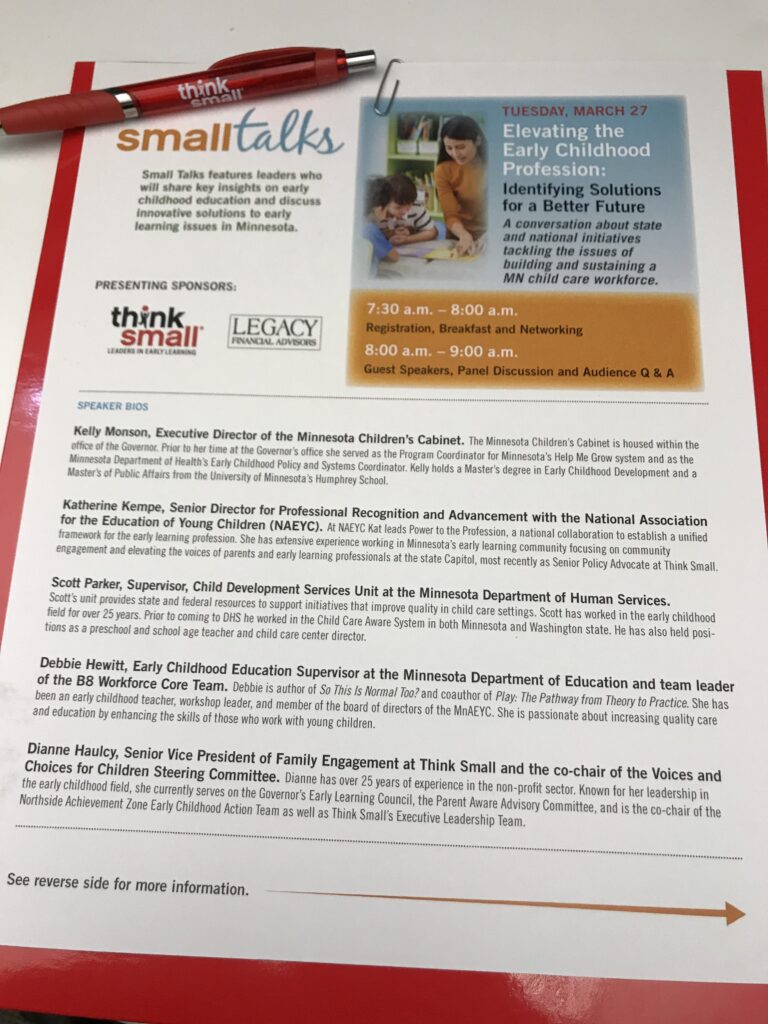 Panelist Debbie Hewitt, an Early Childhood Education Supervisor with the Minnesota Department of Education, is also the team leader of Minnesota’s B8 Workforce Core team. The team is meeting to develop state-specific plans to implement recommendations from a ‘Transforming the Workforce’ national report.“The goal is to create a ten-year implementation plan,” said Hewitt. “And we know that it’s not going to be easy. We need everybody’s work to come together and head in the same direction.”Hewitt said some specific things that need to happen include understanding the importance of early childhood programs and keeping them in operation at institutes of higher education, as well as creating clear pathways for people who may join the profession at different times.“Some people start their preparation in high school, some in mid-life. We need to find ways for them to advance their education and their career at whatever point they choose to enter,” Hewitt said.
Panelist Debbie Hewitt, an Early Childhood Education Supervisor with the Minnesota Department of Education, is also the team leader of Minnesota’s B8 Workforce Core team. The team is meeting to develop state-specific plans to implement recommendations from a ‘Transforming the Workforce’ national report.“The goal is to create a ten-year implementation plan,” said Hewitt. “And we know that it’s not going to be easy. We need everybody’s work to come together and head in the same direction.”Hewitt said some specific things that need to happen include understanding the importance of early childhood programs and keeping them in operation at institutes of higher education, as well as creating clear pathways for people who may join the profession at different times.“Some people start their preparation in high school, some in mid-life. We need to find ways for them to advance their education and their career at whatever point they choose to enter,” Hewitt said.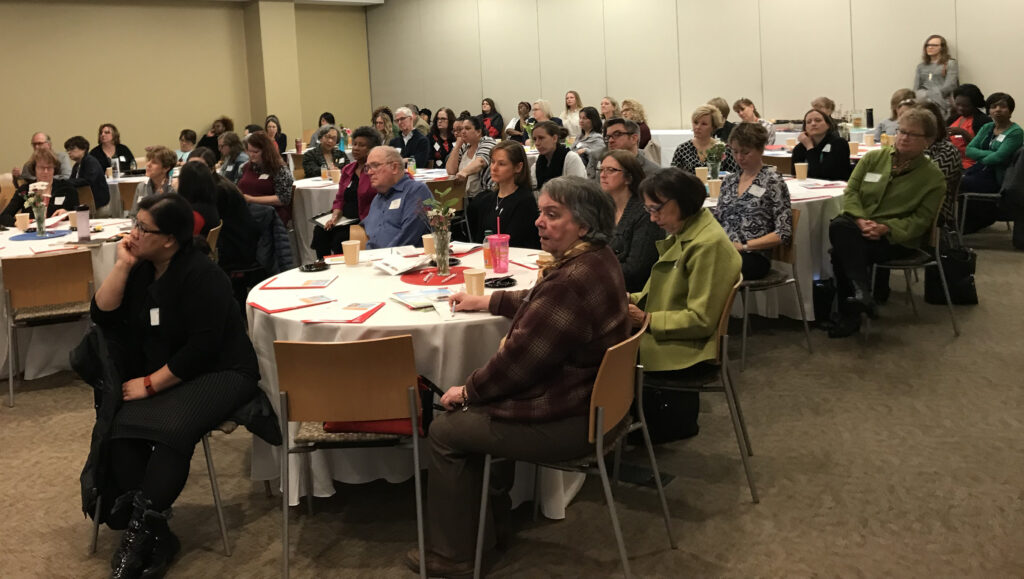 Dianne Haulcy is the Senior Vice President of Family Engagement at Think Small and the co-chair of the Voices and Choices for Children Coalition.“For many children of color in Minnesota, their preschool experience is the only time that they’re able to see a provider or a teacher that looks like them,” said Haucly. “As we work to professionalize this field, we don’t want to do it in a way that pushes providers of color, or non-native English speakers, out of the field by requiring something without sufficient supports, like a degree, that many providers would not be able to obtain.”Visit the event page on Think Small’s website to find a list of helpful links and resources relevant to the topic.Click below to watch a recording of the 3/27/18 Small Talks event.
Dianne Haulcy is the Senior Vice President of Family Engagement at Think Small and the co-chair of the Voices and Choices for Children Coalition.“For many children of color in Minnesota, their preschool experience is the only time that they’re able to see a provider or a teacher that looks like them,” said Haucly. “As we work to professionalize this field, we don’t want to do it in a way that pushes providers of color, or non-native English speakers, out of the field by requiring something without sufficient supports, like a degree, that many providers would not be able to obtain.”Visit the event page on Think Small’s website to find a list of helpful links and resources relevant to the topic.Click below to watch a recording of the 3/27/18 Small Talks event.

